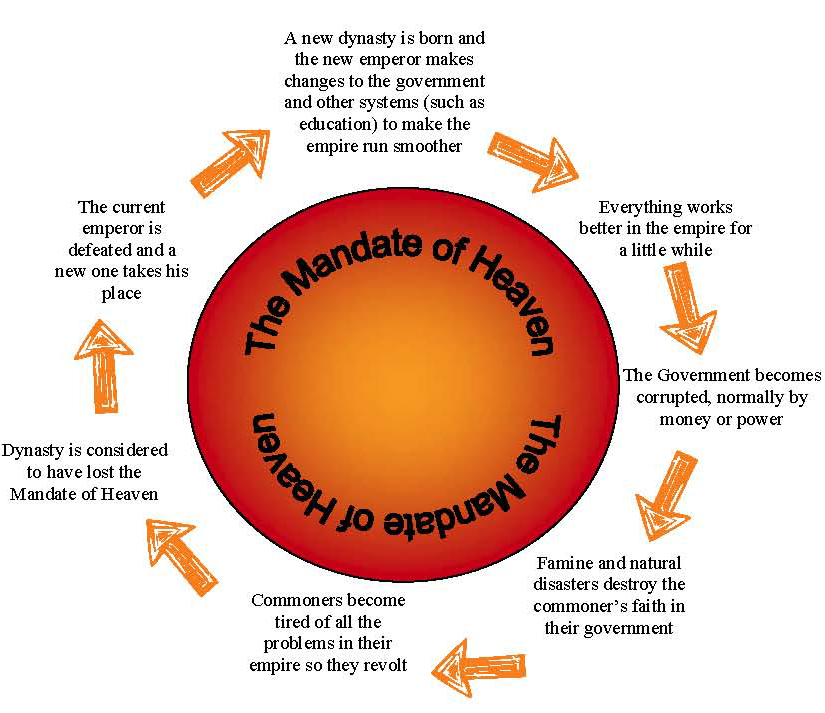The Mandate of Heaven is a profound concept that has shaped the political landscape of China for centuries. Rooted in ancient Chinese philosophy, this idea encapsulates the belief that the emperor's authority is granted by a higher power, serving as a moral justification for their rule. It is not merely a political ideology; it represents a significant cultural and spiritual dimension that intertwines governance with divine will. Understanding the Mandate of Heaven allows us to delve into the intricate relationship between rulers and the ruled, emphasizing the importance of virtue and moral integrity in leadership.
The origins of the Mandate of Heaven can be traced back to the Zhou Dynasty (1046-256 BCE), when it was first articulated as a means to legitimize the overthrow of the Shang Dynasty. The Zhou rulers claimed that the Shang had lost the Mandate due to their tyranny, thus justifying their rebellion. This powerful narrative not only provided a framework for political change but also instilled a sense of accountability in rulers, suggesting that they could lose their divine right if they failed to govern justly. As centuries passed, this concept evolved, influencing various dynasties and shaping the moral expectations of leadership in Chinese society.
As we explore the Mandate of Heaven further, we will uncover its implications on Chinese history and its relevance in contemporary discussions about governance. What does it mean for a ruler to possess the Mandate of Heaven? How has this idea influenced the behavior of emperors throughout history? Furthermore, we will examine the Mandate of Heaven's role in the rise and fall of dynasties, its philosophical underpinnings, and its resonance in modern political thought. Join us on this journey as we dissect the layers of this intriguing concept and its lasting impact on the fabric of Chinese civilization.
What is the Historical Context of the Mandate of Heaven?
The Mandate of Heaven emerged during a time of significant social and political upheaval in ancient China. As the Zhou Dynasty rose to power, they faced the challenge of legitimizing their rule over a territory previously dominated by the Shang Dynasty. The Zhou cleverly framed their ascension as a moral imperative, arguing that the Shang had lost their right to rule due to their corrupt and oppressive governance. This historical context is crucial for understanding the development and enduring significance of the Mandate of Heaven.
How Did the Mandate of Heaven Influence Chinese Dynasties?
The Mandate of Heaven served as a guiding principle for Chinese rulers, influencing their conduct and governance. Throughout various dynasties, emperors invoked this mandate to justify their rule, claiming divine support for their policies and actions. However, the concept also imposed a standard of accountability; rulers were expected to demonstrate virtue, righteousness, and benevolence. Failure to uphold these values could lead to the loss of the mandate, paving the way for rebellion and the rise of new powers.
What Are the Key Features of the Mandate of Heaven?
- Divine Approval: The Mandate of Heaven is seen as a divine endorsement of a ruler's authority.
- Moral Responsibility: Rulers are expected to govern with virtue and integrity.
- Accountability: The loss of the mandate can occur if rulers become tyrannical or corrupt.
- Cycle of Dynasties: The rise and fall of dynasties are often framed within the context of the mandate.
How Has the Mandate of Heaven Evolved Over Time?
As China transitioned through various dynastic changes and social transformations, the Mandate of Heaven also adapted to reflect new realities. While initially a tool for legitimizing political power, it evolved into a broader philosophical concept that influenced Confucian thought. The Confucian emphasis on moral governance and the well-being of the people resonated with the principles of the Mandate of Heaven, reinforcing the idea that rulers must prioritize the common good.
What Relevance Does the Mandate of Heaven Have Today?
In contemporary discussions about governance and leadership, the Mandate of Heaven continues to resonate. Although modern political systems differ significantly from imperial rule, the underlying principles of moral responsibility and accountability remain pertinent. Political leaders are still evaluated based on their ability to serve the public good, and the idea of losing legitimacy due to corruption or tyranny persists in modern governance.
Can the Mandate of Heaven Be Applied Beyond Chinese History?
The Mandate of Heaven offers valuable insights into political legitimacy and moral responsibility that extend beyond Chinese history. Many cultures have grappled with similar concepts of divine right and accountability. By examining the Mandate of Heaven, we can draw parallels to contemporary political theories and the ongoing quest for just leadership in various societies.
Conclusion: The Enduring Legacy of the Mandate of Heaven
The Mandate of Heaven is not just a relic of China's past; it is a dynamic concept that continues to shape our understanding of governance, accountability, and the ethical responsibilities of leaders. As we reflect on its historical significance and philosophical implications, we recognize the enduring legacy of the Mandate of Heaven in promoting the ideals of virtue and moral integrity in leadership. Whether in ancient China or today's political landscape, the principles embodied in the Mandate of Heaven remind us of the timeless importance of just governance and the pursuit of the common good.
Discovering The Heart Of Palachee High School
Understanding "Ut What I Owe": A Comprehensive Guide
Exciting Developments In Legends Cricket 2024


